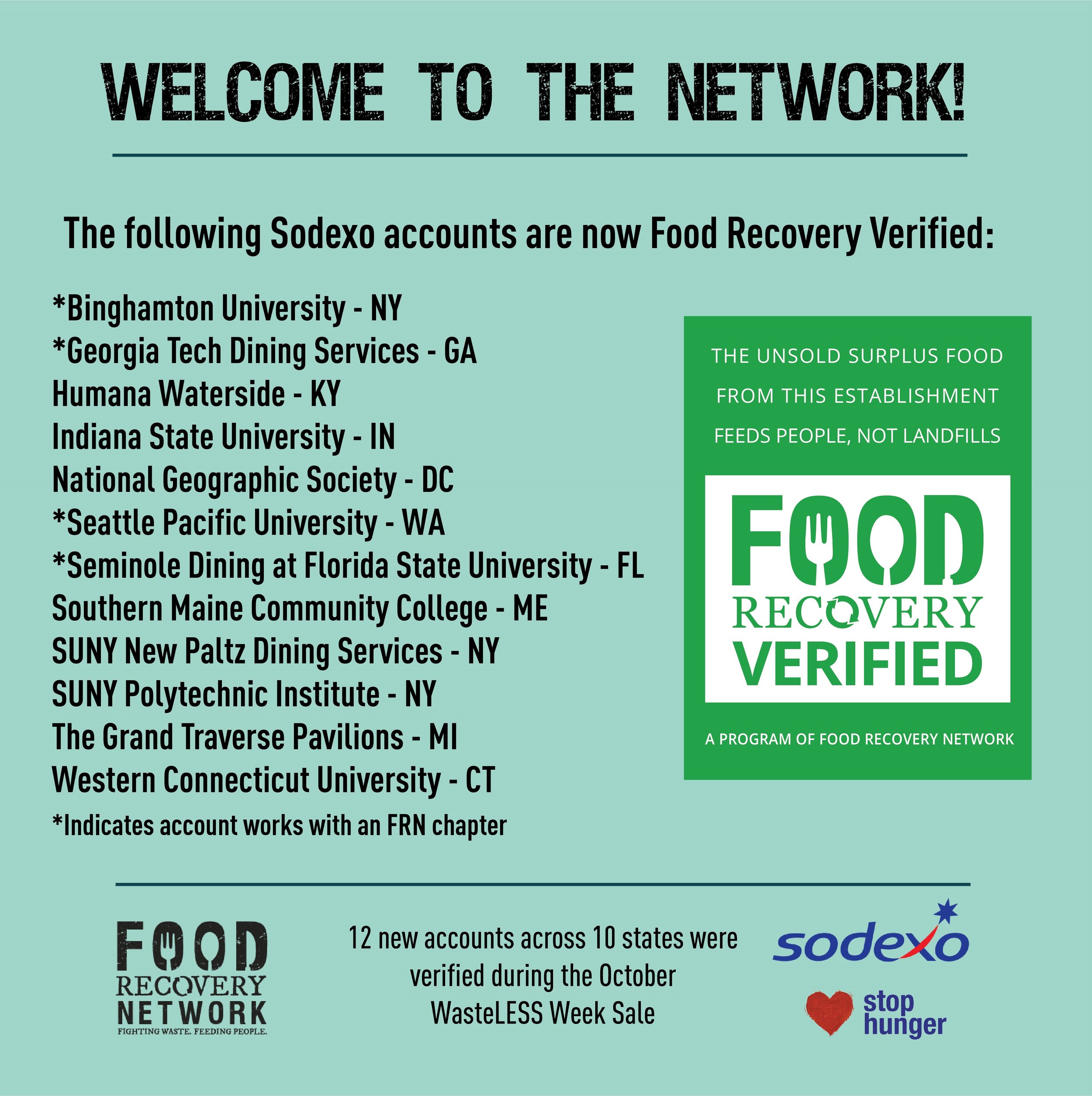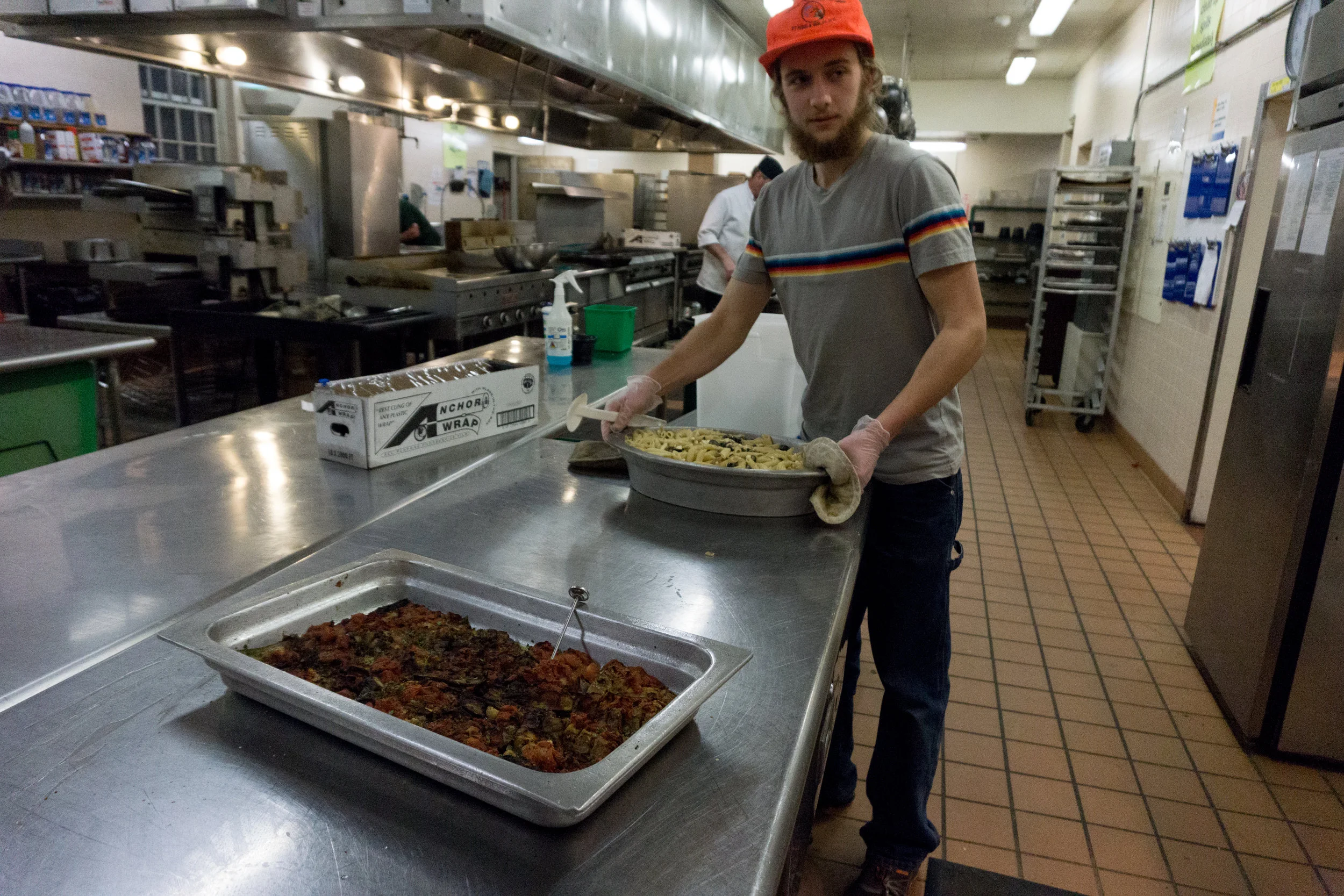Sodexo, food services, and facilities management company, was one of the first funders of Food Recovery Network. As a company, it valued our mission to fight waste and feed people and has continued to support FRN in a multitude of ways for the past six years. Sodexo’s support is crucial and fitting, since it is a major dining provider to colleges and universities throughout the United States, and fighting food waste aligns with its goals.
Every October, Sodexo organizes a WasteLESS Week. This annual campaign “empowers consumers, clients and Sodexo employees to reduce waste by celebrating the benefits of wasting less food, water, energy, paper and raw materials,” according to its website.
As a part of this year’s WasteLESS Week and in recognition of Sodexo’s commitment to Stop Hunger, Sodexo collaborated with FRN to promote the Food Recovery Verified program. Together, we ran a campaign to verify as many Sodexo locations as possible by offering a discounted verification rate. During a single week, we were able to verify 12 new Sodexo locations in 10 states.
WasteLESS Week is a celebration of environmentally responsible behavior. Throughout the week, Sodexo thanks its consumers, clients, and employees for all of the efforts they take on a daily basis to reduce waste. FRV is a third-party verification program that recognizes food businesses for preventing unnecessary food waste by redirecting leftovers from landfills to nonprofits. The type of recognition that FRV provides goes hand-in-hand with the goals of WasteLESS Week.
During FRN's March Madness Sale (March 19-30), all Sodexo locations qualify for an additional 10% discount on Food Recovery Verification.
Email foodrecoveryverified@foodrecoverynetwork.org for more details.
FRN is happy to welcome the following accounts to our network!
Thank you for all that you do to recover and donate your surplus edible food. By becoming Food Recovery Verified, your business is reducing food waste and feeding your community.














